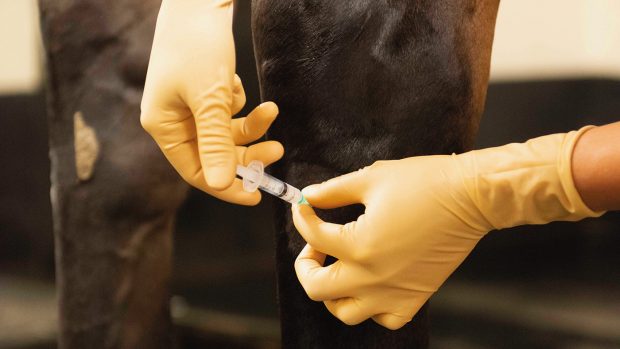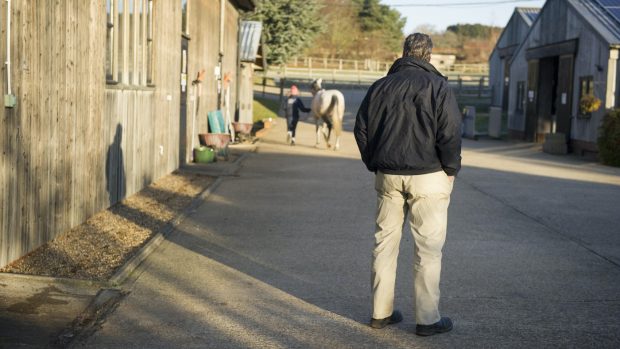Back problems are sometimes blamed for low-grade lameness in horses when in fact the back pain develops secondary to the lameness.
British Equestrian Federation (BEF) physiotherapist Vicky Spalding explains: “When a horse is lame in one leg, he attempts to reduce the loading on this limb by lifting the trunk of his body when the affected leg hits the ground. Back pain can occur when the lumbar and pelvic muscles are overused as a result of this.”
It is always worth looking to the foot as the cause of lameness until proven otherwise.
Horses with chronic foot pain will rapidly develop secondary back problems as a consequence of their bilateral and short-striding shuffling action.
Hock lameness can also cause discomfort along the back muscles, which usually vanishes when the hocks are pain-free.
It can be hard to believe that a single nerve-block in a hock joint will cure back pain, but if the primary lameness can be resolved, then the compensatory pain should reduce too.
“This is one reason why it is so important that a qualified practitioner is used to treat your horse’s back — it is essential that underlying lameness is not missed,” explains Vicky.
But even when the underlying injury and the associated back pain have been identified and treated, the story may not be over.
“Studies show that in the human spine, when back pain resolves, the core stabilising muscles may not regenerate fully unless stimulated to do so by specific rehabilitation exercises,” Vicky says.
“This may be significant in horses with compensatory back pain and it indicates a need for rehabilitation and re-education of movement following an episode of lameness.”
But remember, back pain can be a problem of its own, for instance in a horse with kissing spines.
For the full article on compensatory injuries, see Horse & Hound (10 December, ’09)




